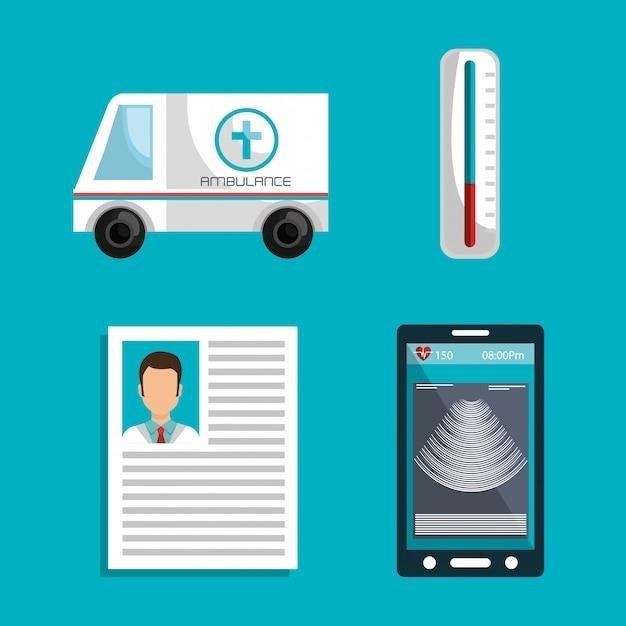boat trailer bill of sale pdf
Boat Trailer Bill of Sale PDF⁚ A Comprehensive Guide
This guide provides a thorough understanding of boat trailer bill of sale PDFs, covering essential information, legal requirements, and state-specific regulations. Learn how to create a legally sound document, transfer ownership smoothly, and navigate the DMV process efficiently. Downloadable templates and helpful tips ensure a successful transaction for both buyers and sellers. Protect yourself legally and avoid future complications by using this comprehensive guide.
Essential Information for a Valid Boat Trailer Bill of Sale
A legally sound boat trailer bill of sale requires specific details. Crucially, include the complete names and addresses of both buyer and seller. The date of the sale must be clearly stated. Thorough description of the trailer is essential; this includes the make, model, year, VIN (Vehicle Identification Number) if applicable, and any unique identifying features. The purchase price needs to be explicitly stated in numerical and written form. Both buyer and seller must sign and date the document. Consider adding a notary public acknowledgment for extra legal protection, especially for high-value transactions. A clear statement that the trailer is sold “as is” can protect the seller from future liability. Finally, specify whether the sale includes any additional accessories or components.
Including Boat and Motor Details in the Bill of Sale
If the sale involves a boat and motor in addition to the trailer, ensure these details are meticulously documented within the bill of sale. Clearly specify the make, model, and year of the boat. Include the hull identification number (HIN), a unique identifier for the vessel. For the motor, record the make, model, serial number, and horsepower. If applicable, note any significant features of the boat or motor, such as the type of propeller or any custom modifications. Separately list the purchase price for each item (boat, motor, and trailer) if sold individually, or state the total purchase price if sold as a package. Accurate documentation of all components safeguards both the buyer and seller against future disputes. This comprehensive approach ensures a clear and legally sound record of the transaction.
Transferring Ownership⁚ Legal Requirements and Procedures
Legally transferring ownership requires a properly executed boat trailer bill of sale. Both buyer and seller must sign and date the document, ensuring all information is accurate and complete. The bill of sale serves as proof of the transaction, protecting both parties. Depending on your state, additional steps might be necessary, such as registering the trailer with the Department of Motor Vehicles (DMV). This typically involves submitting the bill of sale, along with other required documents like proof of identification and payment of applicable fees. Failure to properly transfer ownership can lead to legal complications and disputes. Consult your state’s DMV for specific procedures and requirements to ensure a smooth and legal transfer of ownership. A properly completed bill of sale is the crucial first step.
State-Specific Regulations for Boat Trailer Sales
State laws vary significantly regarding boat trailer sales and titling. Understanding your state’s specific requirements for transferring ownership is crucial for a legal and smooth transaction. Always check with your local DMV for complete and accurate information.
Boat Trailer Bill of Sale Requirements in Different States
The specific requirements for a boat trailer bill of sale vary considerably from state to state. Some states may mandate specific information to be included, such as the trailer’s VIN, make, model, year, and weight. Others may have stricter rules on notarization or witness signatures. Certain states might require the bill of sale to be submitted alongside the title transfer application with the Department of Motor Vehicles (DMV). Failure to comply with these state-specific regulations can lead to delays or rejection of the title transfer application. Therefore, it’s imperative to research the precise requirements of the state where the sale takes place. This research should include checking the DMV website or contacting them directly for clarification. Using a generic template might seem convenient, but ensuring compliance with local regulations is paramount to avoid legal issues. Always prioritize accuracy and completeness when documenting the transaction.
Navigating the DMV Process for Title Transfer
Successfully transferring a boat trailer title involves understanding and following your state’s DMV procedures. This typically requires submitting the completed bill of sale, along with the original title signed over by the seller, to the relevant DMV office. You might need to provide additional documentation, such as proof of insurance or payment of applicable taxes and fees. The DMV will then process the application and issue a new title in the buyer’s name. Processing times can vary, so allow sufficient time for the transfer. It’s advisable to check your state’s DMV website for specific instructions and required forms beforehand. Contacting the DMV directly to clarify any doubts or address specific concerns is also a proactive approach. Failure to provide all the necessary documents or correctly complete the forms could result in delays or the rejection of your application. Careful preparation and attention to detail are key to a smooth and efficient title transfer process.
Understanding Lien Releases and Their Importance
A lien release is a crucial document when selling a boat trailer that has an outstanding loan or financing. It’s a formal statement from the lender confirming that the loan has been fully repaid and the lien on the trailer has been released. Without a lien release, the buyer cannot legally obtain a clear title. Attempting to transfer ownership without resolving the lien could lead to legal disputes and financial complications for both the buyer and seller. The seller is responsible for obtaining the lien release from the lender before the sale is completed. This typically involves providing proof of payment, such as a cancelled check or bank statement, to the lender. The lien release should be included in the transaction documents alongside the bill of sale. Buyers should always verify the lien release to ensure the trailer is free and clear of any financial encumbrances before completing the purchase. Ignoring this crucial step can result in unexpected costs and legal issues down the line.
Downloadable Templates and Resources
Access free printable boat and trailer bill of sale forms and utilize online generators for creating legally compliant PDFs. Ensure your chosen template includes all necessary fields for a smooth transaction.
Free Printable Boat and Trailer Bill of Sale Forms
Avoid costly legal fees and streamline your boat and trailer sale with readily available free printable forms. Many websites offer downloadable templates in PDF or Word formats, ensuring a legally sound record of the transaction. These templates typically include essential fields such as buyer and seller information, detailed descriptions of the boat and trailer (make, model, year, VIN, etc.), purchase price, date of sale, and spaces for signatures. Remember to always double-check that the form accurately reflects the details of your specific sale to mitigate any future disputes. Using a standardized form ensures all necessary information is included, making the transfer of ownership to the DMV simpler and less prone to errors. A correctly filled-out form is crucial for a smooth transaction and protects both parties involved.
Using Online Bill of Sale Generators and PDF Editors
For a more convenient and potentially customizable approach, consider utilizing online bill of sale generators. Numerous websites offer these services, allowing you to input relevant details and generate a professional-looking PDF document. This eliminates the need for manual typing and reduces the risk of errors. Many generators offer a range of templates, providing flexibility to choose one that best suits your specific needs. After generating the form, PDF editors allow you to further customize the document, add your signatures (digital or scanned), and ensure all information is accurate and complete before printing or sharing electronically. This modern approach offers efficiency and accuracy, helping ensure legal compliance and a smooth transaction. Remember to verify the legitimacy and security of the website before using any online generator or editor.
Ensuring Legal Compliance with Your Chosen Template
Before finalizing and using any boat trailer bill of sale PDF template, carefully review its contents to ensure complete legal compliance. Verify that the template includes all necessary information, such as the buyer’s and seller’s details, complete descriptions of the boat and trailer (including VIN or hull ID numbers where applicable), purchase price, date of sale, and both parties’ signatures. Confirm that the template accurately reflects the relevant state laws regarding boat and trailer sales. If unsure about any aspect of the template’s legal sufficiency, consult with an attorney specializing in vehicle and property transactions to review the document and confirm its validity. Using a legally sound template minimizes risks and ensures the transaction is legally binding and protects both parties involved.
Tips for a Smooth Transaction
Clear communication, accurate documentation, and a well-defined agreement are crucial for a seamless boat trailer sale. Thorough inspection by both parties before finalizing the sale prevents future disputes.
Protecting Yourself as Buyer and Seller
For buyers, thoroughly inspect the boat trailer’s condition before finalizing the purchase. Verify the trailer’s VIN against the bill of sale and title (if applicable). Obtain a clear lien release if necessary. For sellers, ensure the buyer’s information is accurate on the bill of sale. Clearly state the trailer’s condition, noting any existing damage. Keep copies of all documentation, including payment records. A reputable notary can add an extra layer of security to the process. Remember, a detailed bill of sale protects both parties by providing clear evidence of the agreement and transaction details. This minimizes potential disputes and ensures a legally sound transfer of ownership. Consider having a witness present during the exchange and signing of the bill of sale.
Importance of Accurate Information and Documentation
Precise and complete information is crucial for a legally binding boat trailer bill of sale. Inaccuracies can lead to complications during title transfers and registration. The bill of sale must clearly identify both buyer and seller, including addresses and contact details. Accurate descriptions of the boat trailer are essential, including the make, model, year, VIN (if applicable), and any unique identifying features. The purchase price must be explicitly stated, along with the date of sale. Any existing liens or encumbrances should be clearly disclosed. Maintain meticulous records of all documents related to the transaction, such as payment receipts and copies of the signed bill of sale. This comprehensive documentation protects both buyer and seller from potential legal disputes and ensures a smooth transfer of ownership.
Negotiating Terms and Conditions of Sale
Before finalizing a boat trailer sale, carefully negotiate all terms and conditions. Clearly define the purchase price and payment method, specifying whether it’s a cash transaction, check, or financing. Determine who is responsible for transferring the title and registration. Discuss the condition of the boat trailer, addressing any known defects or repairs needed. Consider including clauses regarding warranties or guarantees, specifying the duration and coverage. Establish a clear timeline for the transfer of ownership, including the date of delivery and payment schedule. Both parties should thoroughly review and understand all aspects of the agreement before signing the bill of sale. If necessary, consult with legal counsel to ensure the agreement protects both parties’ interests. A well-defined agreement prevents future misunderstandings and disputes.



